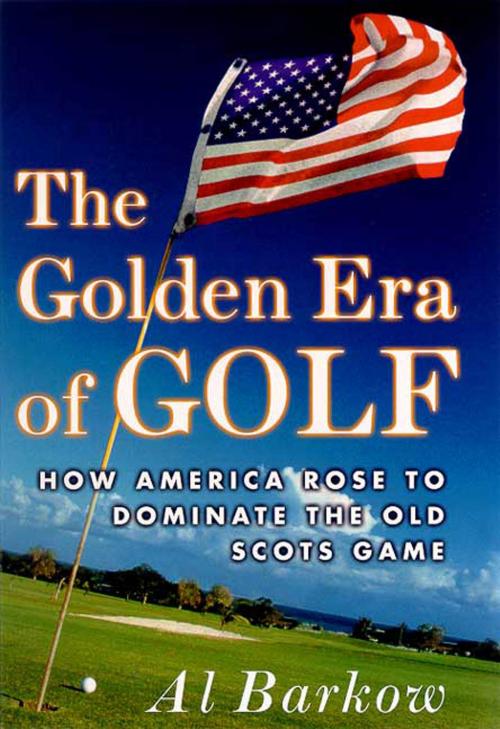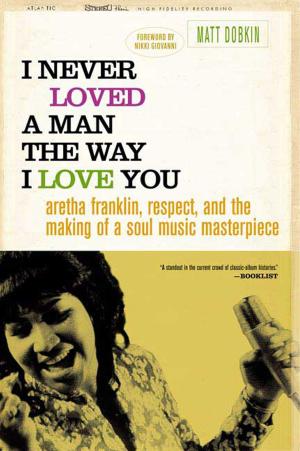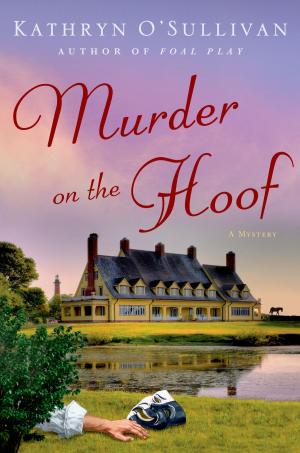| Author: | Al Barkow | ISBN: | 9781466883673 |
| Publisher: | St. Martin's Press | Publication: | October 21, 2014 |
| Imprint: | Thomas Dunne Books | Language: | English |
| Author: | Al Barkow |
| ISBN: | 9781466883673 |
| Publisher: | St. Martin's Press |
| Publication: | October 21, 2014 |
| Imprint: | Thomas Dunne Books |
| Language: | English |
Until now, no one has made the point directly and unequivocally that the game "invented" by ancient Scots would not have reached its present stature in the world of sports if Americans had never gotten hold of it. Is this to say that Al Barkow is, in The Golden Era of Golf, being a narrow-minded, American-flag-waving jingoist? Not at all.
In detailing how America expanded on the old Scots game, Barkow does not deny that the United States more or less fell into certain advantages that led to its dominion over the game - there is the geography, the luck of not having to endure the physical devastation of two world wars, and a naturally broader economic strength. Still, Barkow also makes it clear that there were, and there remains, certain especially American characteristics - a singular energy and enthusiasm for participation in and observation of games, for melding sports with business, for technological and industrial innovation, and by all means democratic traditions - that turned what had been (and would probably have remained) an insular, parochial past time into a game played by millions around the world. America has been golf's great nurturing force, and Barkow details why and how it happened.
The history of American golf is not exactly a varnished treatment, a mindless glorification full of nationalist ardor, which is in keeping with the author's well-established reputation, developed over the past 37 years as a golf journalist, magazine editor, historian, and television commentator, as someone who looks with a sharp and candid eye at the game. Barkow has points of view and takes positions on affairs and personalities that impact on every aspect of golf.
Is the United States Golf Association, in its restrictions on equipment, playing ostrich to inevitable technological innovation? Hasn't it always? And, hasn't the association always been hypocritical in its definition of amateurism? Was the Ryder Cup ever really a demonstration of pure hands-across-the-sea good fellowship? Why did it take so long for the members of the Augusta National Golf Club to invite a black to play in its vaunted Masters tournament? Barkow was one of the first journalists to research in depth and write about how blacks were excluded from mainstream American golf for most of this century. Here, he expands on an element of history which is intrinsic to the larger American experience and which led to the coming of Tiger Woods.
How good has television been for golf, and when and by whom did this most powerful of mediums get involved in the game? Is Greg Norman's celebrity (and personal wealth) an example or the result of modern-day image making that gives greater value to impressions of greatness than the reality of actual performance?
Although some curmudgeon emerges in this chronicle of golf, what also comes through, and on a larger note, is the author's passion for the game itself. Its demands on each player's will, determination, and both inherent and developed physical skills are so penetrating, and the satisfaction that comes from just coming close to fulfillment so great, that the manipulations of the golf "operators" - administrators, agents, some of its players, et al. - become mere sidebars.
This is golf history with a certain perspective that arises from someone who has lived intimately with the game as a player and writer for at least half the century that is covered, and in particular the last half, on which there is the greater emphasis. It runs the gamut - from feisty, albeit well-considered, criticism to an evocation of the human drama that is finally the most vivid expression of any activity man takes on.
Until now, no one has made the point directly and unequivocally that the game "invented" by ancient Scots would not have reached its present stature in the world of sports if Americans had never gotten hold of it. Is this to say that Al Barkow is, in The Golden Era of Golf, being a narrow-minded, American-flag-waving jingoist? Not at all.
In detailing how America expanded on the old Scots game, Barkow does not deny that the United States more or less fell into certain advantages that led to its dominion over the game - there is the geography, the luck of not having to endure the physical devastation of two world wars, and a naturally broader economic strength. Still, Barkow also makes it clear that there were, and there remains, certain especially American characteristics - a singular energy and enthusiasm for participation in and observation of games, for melding sports with business, for technological and industrial innovation, and by all means democratic traditions - that turned what had been (and would probably have remained) an insular, parochial past time into a game played by millions around the world. America has been golf's great nurturing force, and Barkow details why and how it happened.
The history of American golf is not exactly a varnished treatment, a mindless glorification full of nationalist ardor, which is in keeping with the author's well-established reputation, developed over the past 37 years as a golf journalist, magazine editor, historian, and television commentator, as someone who looks with a sharp and candid eye at the game. Barkow has points of view and takes positions on affairs and personalities that impact on every aspect of golf.
Is the United States Golf Association, in its restrictions on equipment, playing ostrich to inevitable technological innovation? Hasn't it always? And, hasn't the association always been hypocritical in its definition of amateurism? Was the Ryder Cup ever really a demonstration of pure hands-across-the-sea good fellowship? Why did it take so long for the members of the Augusta National Golf Club to invite a black to play in its vaunted Masters tournament? Barkow was one of the first journalists to research in depth and write about how blacks were excluded from mainstream American golf for most of this century. Here, he expands on an element of history which is intrinsic to the larger American experience and which led to the coming of Tiger Woods.
How good has television been for golf, and when and by whom did this most powerful of mediums get involved in the game? Is Greg Norman's celebrity (and personal wealth) an example or the result of modern-day image making that gives greater value to impressions of greatness than the reality of actual performance?
Although some curmudgeon emerges in this chronicle of golf, what also comes through, and on a larger note, is the author's passion for the game itself. Its demands on each player's will, determination, and both inherent and developed physical skills are so penetrating, and the satisfaction that comes from just coming close to fulfillment so great, that the manipulations of the golf "operators" - administrators, agents, some of its players, et al. - become mere sidebars.
This is golf history with a certain perspective that arises from someone who has lived intimately with the game as a player and writer for at least half the century that is covered, and in particular the last half, on which there is the greater emphasis. It runs the gamut - from feisty, albeit well-considered, criticism to an evocation of the human drama that is finally the most vivid expression of any activity man takes on.















